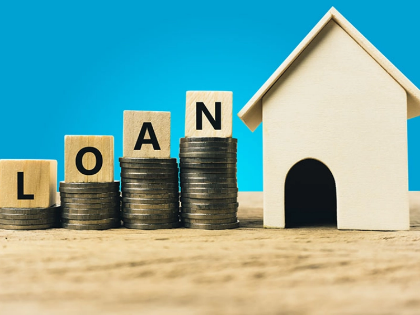Where Can I Get a Mortgage Loan: Mortgage Brokers or Banks?
Homebuyers should take into account two primary variables when determining where to obtain a mortgage loan. A direct lender manages the entire process in-house, while a mortgage broker can offer a wide range of mortgage options from other lenders. Applying for a mortgage through the bank or credit union where you now conduct business is also something to think about, as it can help you save fees and even be eligible for perks like relationship discounts.
Prices
 The interest rates charged by mortgage lenders represent the cost of borrowing money. They also cover other loan costs, including underwriting and origination costs. On the website of a lender, you can evaluate mortgage rates and annual percentage rates (APRs) to find the best fit for you.
Lenders take into account a number of important aspects when deciding your mortgage rate, including your down payment amount, credit score, and debt-to-income ratio. Each sort of mortgage has a different set of requirements. For instance, because they pose less risk to the lender, first-time homeowners may qualify for lower rates and fewer down payments on government-backed and conventional mortgages.
Since they deal with multiple lenders, mortgage brokers frequently have access to a wider variety of mortgage products than banks. Whole-of-market refers to the ability of the top mortgage brokers to provide you with products from the entire market. However, some brokers are only able to discuss the mortgages that they offer because they are associated with a specific bank or building society.
The interest rates charged by mortgage lenders represent the cost of borrowing money. They also cover other loan costs, including underwriting and origination costs. On the website of a lender, you can evaluate mortgage rates and annual percentage rates (APRs) to find the best fit for you.
Lenders take into account a number of important aspects when deciding your mortgage rate, including your down payment amount, credit score, and debt-to-income ratio. Each sort of mortgage has a different set of requirements. For instance, because they pose less risk to the lender, first-time homeowners may qualify for lower rates and fewer down payments on government-backed and conventional mortgages.
Since they deal with multiple lenders, mortgage brokers frequently have access to a wider variety of mortgage products than banks. Whole-of-market refers to the ability of the top mortgage brokers to provide you with products from the entire market. However, some brokers are only able to discuss the mortgages that they offer because they are associated with a specific bank or building society.
Charges
 The costs you pay will vary based on the mortgage lender you use. A mortgage origination fee is one such charge that typically ranges from 0.5% to 1% of the total loan amount. This charge takes care of credit checks, underwriting, appraisal fees, and loan application processing. It will be mentioned on your loan estimate or closing disclosure and is normally paid at closing.
Lenders of mortgages may impose extra costs, like appraisal and escrow fees. Furthermore, certain fees can be negotiated, while others cannot. Clients can attempt to bargain with a lender if they are being charged an excessively high cost.
Financial experts known as mortgage brokers act as middlemen between mortgage lenders and borrowers. They can assist you in comparing lenders and locating the finest offers for the acquisition of a home. Additionally, they provide an array of government-guaranteed home loans, including FHA and VA mortgages. Compared to traditional mortgages, some of these loans have lower down payments, but the interest rates could be a little bit higher.
The costs you pay will vary based on the mortgage lender you use. A mortgage origination fee is one such charge that typically ranges from 0.5% to 1% of the total loan amount. This charge takes care of credit checks, underwriting, appraisal fees, and loan application processing. It will be mentioned on your loan estimate or closing disclosure and is normally paid at closing.
Lenders of mortgages may impose extra costs, like appraisal and escrow fees. Furthermore, certain fees can be negotiated, while others cannot. Clients can attempt to bargain with a lender if they are being charged an excessively high cost.
Financial experts known as mortgage brokers act as middlemen between mortgage lenders and borrowers. They can assist you in comparing lenders and locating the finest offers for the acquisition of a home. Additionally, they provide an array of government-guaranteed home loans, including FHA and VA mortgages. Compared to traditional mortgages, some of these loans have lower down payments, but the interest rates could be a little bit higher.
Credibility
 Several factors need to be taken into account when deciding between a lender and a mortgage broker. Considerations like fees, interest rate, and reputation of the lender are crucial. Borrowers should, however, carefully consider their objectives and choose the person who best fits them. A borrower may be able to avoid mortgage broker costs and take advantage of connection benefits by applying directly, for instance, if they currently do business with a financial institution.
Acting as a middleman between lenders and borrowers, a mortgage broker holds a government license. They often get compensated by the lender for the price they charge for their services, while some brokers take payment directly from the borrower. Although they do not underwrite or fund the loan, they can recommend loans that might be suitable for a borrower's credit profile. Ultimately, it is up to the lender to decide whether and under what conditions to issue a loan. After a borrower applies, a lender will typically provide them with a loan estimate within three days that includes a detailed summary of all the costs and details of the loan.
Several factors need to be taken into account when deciding between a lender and a mortgage broker. Considerations like fees, interest rate, and reputation of the lender are crucial. Borrowers should, however, carefully consider their objectives and choose the person who best fits them. A borrower may be able to avoid mortgage broker costs and take advantage of connection benefits by applying directly, for instance, if they currently do business with a financial institution.
Acting as a middleman between lenders and borrowers, a mortgage broker holds a government license. They often get compensated by the lender for the price they charge for their services, while some brokers take payment directly from the borrower. Although they do not underwrite or fund the loan, they can recommend loans that might be suitable for a borrower's credit profile. Ultimately, it is up to the lender to decide whether and under what conditions to issue a loan. After a borrower applies, a lender will typically provide them with a loan estimate within three days that includes a detailed summary of all the costs and details of the loan.
Momentum
 The type of loan, credit score, and lender all affect how long it takes to finish the mortgage loan application process. Knowing what you can afford before starting the process is crucial and can expedite it. The greatest buying price that is affordable can be determined with the aid of a home affordability calculator. Additionally, you can determine if you qualify for government-backed loans such as FHA, VA, or USDA, which have borrower standards that are less stringent than those of conventional mortgages.
Before accepting a mortgage loan, a mortgage lender considers all of the borrower's financial circumstances, including income, debt, and assets. Usually, they look through tax records, credit reports, bank and savings accounts, 401k and IRA information, and tax returns. The length of the underwriting process varies; however, it may go more quickly if the lender is acquainted with the applicant's financial history. Early down payment savings are particularly beneficial because most mortgage lenders require a down payment of at least 3%.
The type of loan, credit score, and lender all affect how long it takes to finish the mortgage loan application process. Knowing what you can afford before starting the process is crucial and can expedite it. The greatest buying price that is affordable can be determined with the aid of a home affordability calculator. Additionally, you can determine if you qualify for government-backed loans such as FHA, VA, or USDA, which have borrower standards that are less stringent than those of conventional mortgages.
Before accepting a mortgage loan, a mortgage lender considers all of the borrower's financial circumstances, including income, debt, and assets. Usually, they look through tax records, credit reports, bank and savings accounts, 401k and IRA information, and tax returns. The length of the underwriting process varies; however, it may go more quickly if the lender is acquainted with the applicant's financial history. Early down payment savings are particularly beneficial because most mortgage lenders require a down payment of at least 3%.












